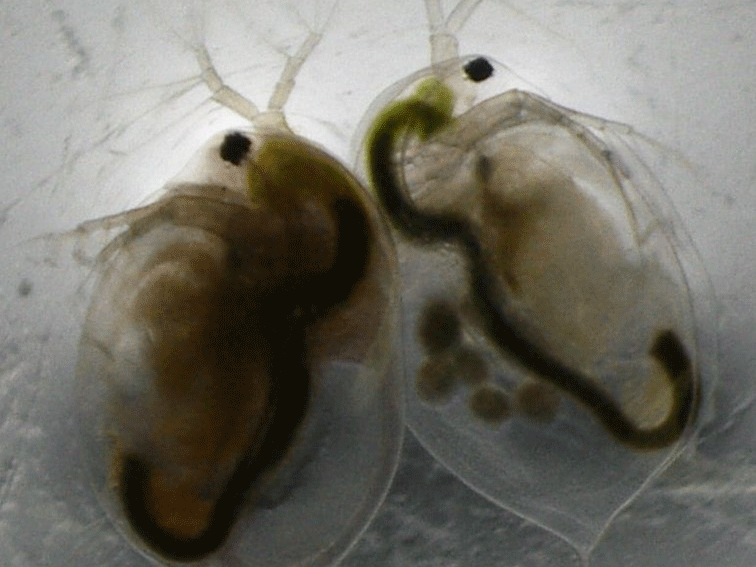Sex can help future generations resist infection, study finds
A study of finds that water fleas produced by sexual reproduction were more than twice as resistant to infection as those produced clonally

Sex can help future generations resist infection, according to new research.
Scientists at the University of Stirling made discovery after studying more than 6,000 water fleas.
They specifically chose the tiny creatures because they are capable of reproducing using a cloning process, as well as having sex.
As a result they were able to make direct comparisons between the two reproduction methods after harvesting sexually and clonally produced water fleas from the wild and exposing them to parasites in a laboratory.
They found that sexually produced offspring were more than twice as resistant to infectious disease, according to their research published in the Proceedings of the Royal Society B research journal.
"By comparing clonal and sexual daughters from the same mothers, we found sexually produced offspring get less sick than offspring that were produced clonally," Dr Stuart Auld, the report's joint author said.
"The ever-present need to evade disease can explain why sex persists in the natural world in spite of the costs," he added.
Join our commenting forum
Join thought-provoking conversations, follow other Independent readers and see their replies
Comments
Bookmark popover
Removed from bookmarks